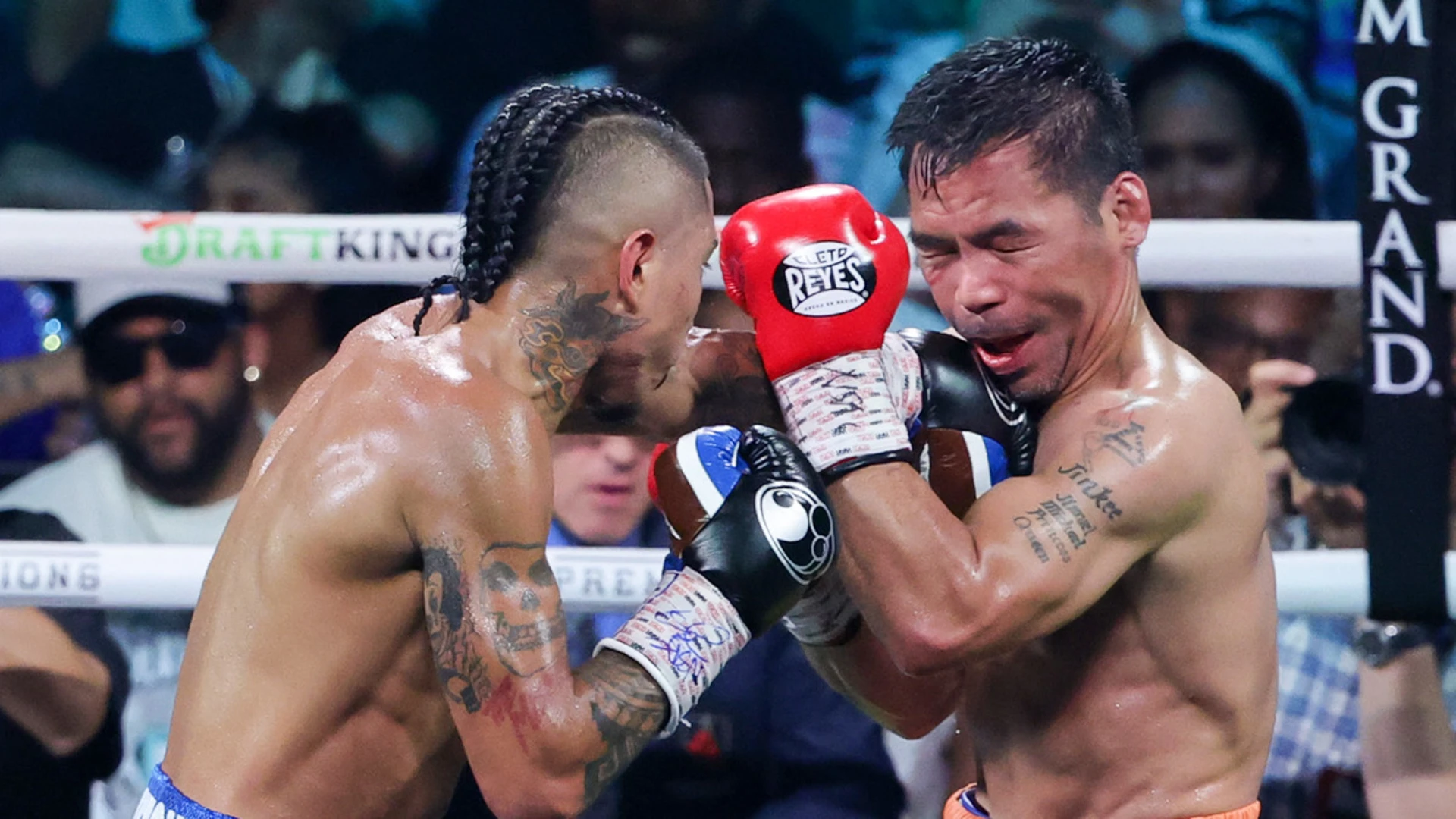Pacquiao latest boxer to risk legacy for lure of the ring

Manny Pacquiao's return to the ring at the weekend after a four-year hiatus marked the latest example of a boxer well past his prime who could not resist the temptation of the squared circle and a chance to add to his competitive legacy.
The 46-year-old Filipino came out of retirement on Saturday to fight Mario Barrios in Las Vegas but fell short of breaking his own record as the oldest-ever welterweight champion as the American boxer escaped with a majority draw.
Fights involving boxers like Pacquiao, who is one of the sport's all-time greats, used to dominate headlines and attract a who's-who of celebrities ringside but there was considerably less buzz around his latest foray into the ring.
"He's a tremendously meaningful fighter, but is this a meaningful fight? Not really," International Boxing Hall of Fame broadcaster Jim Lampley told Reuters ahead of the fight. "He's 46 years old. He's been away from the ring for four years. Do I need to say more?"
Despite returning to the ring at an advanced age against a boxer 16 years younger than him, Pacquiao put up a valiant effort and even looked to have had the upper hand until late in the bout when Barrios turned up the aggression.
Pacquiao, a Filipino senator from 2016 to 2022 and who last month was inducted into the International Boxing Hall of Fame, not only silenced some of his critics with his performance but also made clear his comeback is not over.
"Don't worry, the PacMan is back, and the journey will continue," Pacquiao told reporters after the fight.
Pacquiao is hardly the first middle-aged boxer who returned to the ring hoping to roll back the years. Last November, former heavyweight champion Mike Tyson came out of retirement at 58 to face Jake Paul in a fight that did not match the hype.
Lampley said it's not surprising to see fighters miss the thrill of the spotlight, even if they are far from their peak, and recounted a time he once asked Sugar Ray Leonard, who made two ill-fated comebacks, why it was so hard to stay away.
"He said 'I have surveyed every thrill a man of my level of privilege can experience. Nothing matches the thrill of stepping out of that corner ... another man facing me from 15 feet away, and trying to prove I am more man than him'," Lampley said.
"He knew why he couldn't quit. He could not give up the thrill of that identity and that experience. It is absolutely an addiction."
HEALTH CONCERNS
Like any sport, competing at the highest level presents many challenges as an athlete ages. But in a sport like boxing, which involves repeated blows to the head, it also comes with specific health concerns.
Robert Cantu, medical director of the Concussion Legacy Foundation, said the cumulative effect of repeated blows over a career can take a toll and one should be wary of subjecting an aging brain to more injury.
"The reason we don't (want people boxing in their 40s) is that the brain is already starting to lose neural cells after the age of 20, and by the age of 40 you've lost a fair number," said Cantu.
"And if you keep losing more than you would have otherwise lost because you are having your head rattled around taking blows you are increasing your risk for dementia."
For some aging boxers who still possess name recognition and the ability to land lucrative paydays, that risk appears worth it for them to step back into the ring though one is left to wonder if their fights are doing the sport more harm than good.
Advertisement